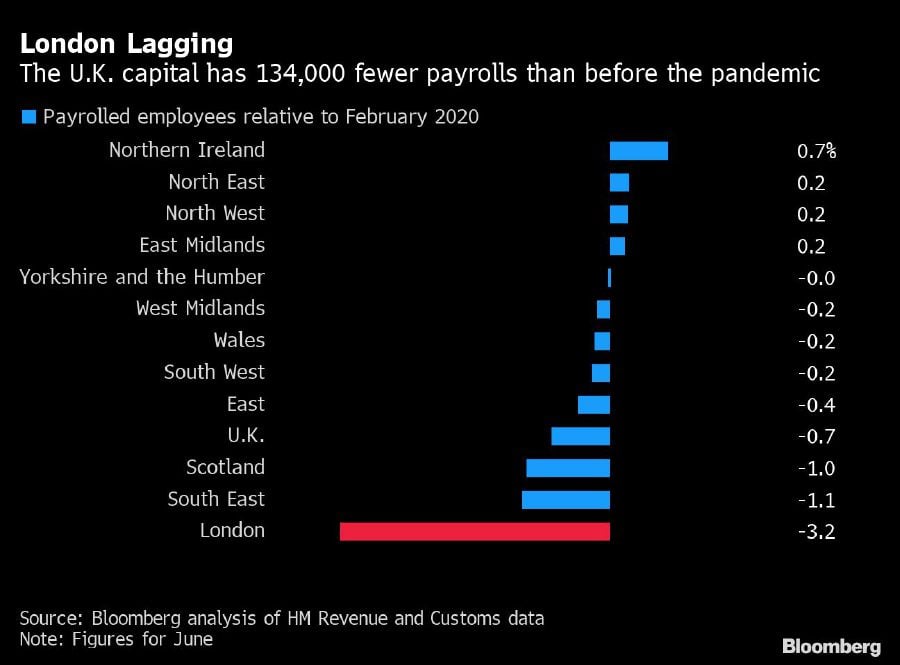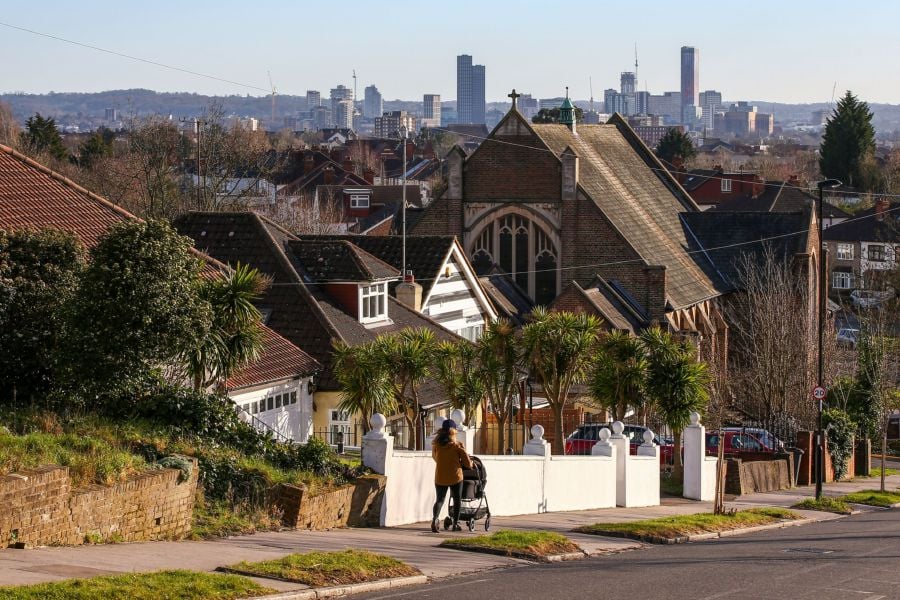London's young people are moving to the suburbs after more than a year of pandemic restrictions closed offices and gutted the city's hospitality industry.
Data from SpareRoom, a website that pairs up people seeking house shares and those with rooms to rent, indicates higher prices in London's outer boroughs and a decline in central neighborhoods during the second quarter.
The findings underscore the difficulty London has in recovering from restrictions that sent office workers home and closed shops and restaurants that employ many young people. The capital lags every other region in the U.K. in generating jobs. That and expectations that people can continue to do their work from home have undercut the appeal of living in central London.
"The pandemic has accelerated what was already happening," said Tom Bill, head of research at the estate agent Knight Frank. "People were already starting to leave London because it was an affordability squeeze -- to buy and with renting as well."
Outer-London boroughs have bounced back much faster than those in the center. Leafier suburbs a 40-50 minute commute from the center are now more expensive that they were pre-pandemic, according to SpareRoom data. Sharp falls are being recorded in prime locations.
SpareRoom's data provides a glimpse of what young people are doing because it specializes in those who share apartments. Three-quarters of its users are between 18 and 34 years old and have the flexibility to move with notice of a month or so. Many left London when lockdowns to control the coronavirus started in March 2020.
Like older people, more young people are seeking places with room to maintain an office and access to outdoors -- two things that became a high priority during lockdowns. Even though most of those restrictions are due to lapse on July 19, preferences haven't shifted back to where they were before.
"They've tasted the promised land, and they want to have a bit more of it," said Jeremy Traynor, a letting agent in North London.
The figures add detail broader housing market indicators tracked by mortgage lenders such as Nationwide Building Society and Halifax. They have said house prices and property rental costs have surged in areas outside city centers and lagged in London in recent months. Rightmove, a property website, showed growth in inner London in July for the first time since the start of the crisis. Those reports detail transactions involving whole properties.
Official government statistics show London rental values fell 0.1 per cent in the year to June, lagging every other region of the country. The figures don't break down central London from the suburbs or touch on spare rooms.
SpareRoom's data shows the lowest end of the market where people often rent a single room in a shared accommodation. It captures those who have just started a career and can't afford to live on their own as well as students at universities.
Fewer students will take up lodging in central London this year after institutions including University College London announced online teaching for the next academic year. That's exacerbated by pandemic travel restrictions and visa rules following Britain's exit from the European Union that make it more difficult for overseas students to come to the U.K.

SpareRoom expects to benefit from the shift because some people with property far outside London will need a place to stay when they visit London. Over-50s are the fastest growing demographic on the website, said Matt Hutchinson, SpareRoom's director of communications.
"It's something that will increase post-pandemic because it will suit both sides," Hutchinson said. "If you live somewhere else, and you need to be in town a couple nights and need a room, then to be able to rent somewhere relatively cheaply. If people don't they need to be in London for work, they may choose to settle elsewhere." - Bloomberg





